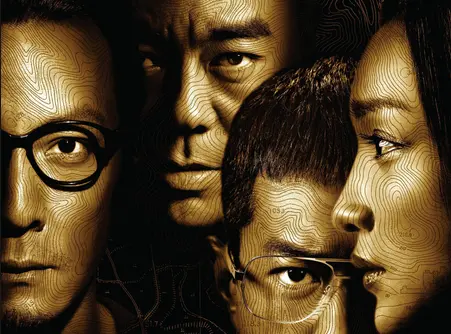It has been eight years since Yue Dejian went to see a movie in the cinema.
The 68-year-old Beijing resident says he stopped going because he couldn't relate to what was being portrayed.
"I remember watching the American film 'On the Golden Pond' more than 30 years ago, which impressed me with the topic of generation gap," he says.
"But these days it is so hard to find similar quality films dealing with old age issues in Chinese cinemas."
In China, movies featuring themes of love, youth and fantasy are luring young audiences, but motion pictures depicting the stories of the aged are under a market spell.
In 2013, the domestic film "Full Circle", featuring famous Chinese actress Siqin Gaowa, was chosen as the opening film of the Chinese Film Festival in Belgium. The project, which depicts the journey for happiness among a group of elderly from a nursing home, went on to pick up an award at the 20th Beijing Student Film Festival. But it was a commercial disappointment in China, reaching a mere 3.5 million yuan (559,600 U.S. dollars) at the box office.
Even the critically acclaimed film "A Simple Life", which touches on the issue of aging, was a moderate box office success, grossing 62 million yuan on the Chinese mainland. The film features Hong Kong movie superstars Andy Lau and Deanie Ip, and was a big winner at the 68th Venice Film Festival.
The Chinese population is graying, with about 200 million people aged 60 and over. The number accounts for around 14 percent of the total population and is expected to surge to 400 million by 2050, creating huge market potential for film releases in the category. But movies centering on the graying life are currently watered down, said Zhang Sining, head of Liaoning Academy of Social Sciences.
"Films for the aged usually carry a restrained tune and are weaker in dramatic impact, which makes it difficult for them to be artistic while becoming a blockbuster at the same time," said the researcher.
Domestic film-makers are now swarming to cater to the young demographic, which make up the majority of current movie-goers. According to official statistics, 87 percent of those enjoying the cinema in the past two years were aged between 19 and 40, with half of them born in the 1980s and 1990s.
To reverse the trend, Zhang said that films for the elderly do not necessarily have to be "dull" and "slow". He said that "young" and "cool" elements can also be incorporated to help such projects appeal to a bigger audience.
At least one such film is bucking the trend at the moment. Earlier last month, the film "Miss Granny", starring seasoned Taiwan actress Kuei Ya-lei and renowned young actor Bolin Chen, debuted on the Chinese mainland, grossing a staggering 350 million yuan in the box office by the end of January, edging out its Hollywood competitors "Night at the Museum: Secret of the Tomb" and "Seventh Son".
The chart-topper details the story of a sarcastic 70-year-old woman striving to adapt to a brand-new life after being miraculously transformed into a 20-year-old girl.
"We tell the story of an old woman from a young angle by using big stars and adding the elements of love, fantasy and family relations, which everyone can relate to," said the film's producer.
The film is such a big hit that it has been viewed by 8.6 million people in the Republic of Korea, with many young people bringing their parents to cinemas to experience the life of the protagonist.
"I think it's a good start," Zhang said, "it means that even films discussing old age can be approached in a different way."
 简体中文
简体中文

